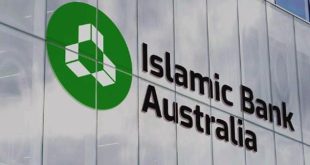© Islamic Finance Today
Rayan Mohammed graduated with a BA in Economics and Law from the University of Leicester before completing an LLM in International Business Law at University College London. His thesis focused on the challenges facing Islamic banking and discussed legislative obstacles and regulatory issues such as the Shari’ah Supervisory Board and Capital adequacy requirements.
The Islamic financial sector has witnessed steady growth in the past decade. Unfortunately, central banks and regulatory bodies have not been able to fully understand how best to supervise this sector. This has led to several issues including:
- Lack of clear communication between Islamic financial institutions (hereinafter abbreviated as IFI) and central banks. This is further compounded by managerial problems and the overly bureaucratic nature of central banks.
- Inability of central banks to supervise and monitor Islamic financial methods, in relation to their compliance with Islamic law (also known as Shari’ah)
- In addition, ensuring that IFIs are providing products and services to customers that are both Shari’ah-compliant and financially viable. For example, many products comply with Shari’ah by abolishing interest rates. However, this may be replaced by excessive administrative charges and costs. Central banks need to ensure that a balance between Shari’ah compliance and financial fairness is established.
While regulatory bodies have tackled Islamic finance in various ways, the requirement for Shari’ah supervision remains universally accepted.
Shari’ah Supervision:
A major innovation of Islamic finance is Shari’ah supervision and compliance through a Shari’ah supervisor. The Shari’ah supervisor can either be an internal Shari’ah Supervisory Board (SSB) or external expert like a Shari’ah scholar. Shari’ah supervision entails:
– Investigating and assessing the Shari’ah-compliance of transactions and products. The Shari’ah supervisor may then invalidate the transaction or request alterations.
– IFIs may request an opinion on areas of disputes. The Shari’ah supervisor can issue a fatwa, a certificate representing his opinion on a specific subject. It serves to certify that the IFI has consulted with a more Shari’ah experienced individual/s before taking a particular course of action.
– Calculate any income that may have accrued from sources that are Shari’ah-incompatible (also known as haram) e.g. interest-bearing accounts. A process of purification is then applied. Such income will then be deducted from total income or if the Shari’ah supervisor is unable to calculate a definite figure, a percentage would be deducted from the total income. The deducted income is then usually donated to charity.
The Shari’ah supervisor must be independent and capable of making binding managerial decisions.
More importantly, the Shari’ah supervisor owes a duty to the Islamic community by certifying that a particular product is Shari’ah-compliant. However, the main issue is who can enforce the Shari’ah supervisor’s decision? Is it up to the customer (e.g. claim that the IFI’s failure to comply with Shari’ah is a form of misrepresentation) or supervisory bodies (who may lack the necessary expertise in Shari’ah)? This greatly diminishes the credibility of Islamic financial services within the Islamic and conventional financial sector.
A Central Shari’ah Supervisor:
Islamic finance in Malaysia has proven to be successful and innovative. One factor that has been attributed to this success is the adoption of a central Shari’ah supervisor (hereinafter abbreviated as CSS) within the Malaysian central bank, Bank Negara Malaysia. A CSS will be able to solve four main concerns.
Firstly, an existing department within the central bank improves communication. It also enables the central bank to delegate duties more efficiently to more experienced individuals.
Secondly, the central bank will evaluate both commercial and Shari’ah aspects of Islamic products and transactions. For example, many financial services abolish interest rates to comply with Shari’ah but may create harsh financial agreements or hidden costs for customers. Not only will it protect customers, it will also help IFIs create better services. This clarity and assurance enables Islamic finance to better compete in the financial services industry.
Thirdly, a mutual agreed fatwa can be issued regarding controversial areas therefore reducing divergence. Also, if a fatwa has the backing of the central bank, it is more likely to have more credibility.
Lastly and perhaps most importantly is the role of the Shari’ah supervisor in the purification of haram income. To many central banks and regulators, this process is viewed with great caution since it raises two concerns:
a) The method of calculation might be unfair.
b) Potential discrepancies in the purified income’s destination, specifically money laundering issues.
A CSS can clearly show regulators the method of calculation used. Also, the income can be forwarded to targets that the central bank agrees to e.g. nationally-recognised charities. This also correlates with the Islamic principles of encouraging charity and prohibiting esraf or excessive waste. Using a CSS allows purification income to be managed in bulk and therefore more efficiently.
Potential Issues:
Recruitment and expertise: Currently, there is a shortage of Shari’ah scholars that are knowledgeable in Islamic and conventional finance. In turn, many Shari’ah scholars will find themselves advising both the central bank and IFIs. This can give rise to insider dealings and conflict of interests. For a CSS to be feasible, a comprehensive code of conduct would need to be drafted to avoid this situation.
Cost: The Islamic financial sector is still in its infancy. With the current economic climate, the Islamic financial sector has proven to be more resilient than its conventional counterparts. Therefore, demand has risen for Islamic financial products and central banks will need to focus on how to effectively supervise these products. However, governmental bodies are greatly affected by the economic situation, particularly Middle Eastern countries that have seen a decrease in anticipated budgets as a result of falling oil prices. Funding a CSS may not be feasible at a time it is needed most.
Too much supervision: Most IFIs will continue to use a SSB to ensure its Shari’ah compliance. This is advantageous since it decreases the workload of CSS and reduces waiting times for IFIs. However, it will create a further level of bureaucracy.
For example, say a IFI’s SSB approves a decision that the CSS eventually overturns. The IFI may need to resubmit the issue to its SSB and ultimately to the CSS, which increases costs on both sides. To tackle this problem, a CSS will need to have a clear mandate. For example, a CSS can govern the major issues such a product structure or percentage of purification income. Whereas, a IFI can use its SSB to perform tasks such the ‘Shari’ah audit’ of potential investments or trade partners.
International playing field: Like its conventional counterpart, the Islamic financial sector is in an international arena. If a CSS is used, it may find certain products, issues, etc. Shari’ah-compliant, depending on that particular nation’s school of jurisprudence (madhhab). However, another nation’s CSS may prohibit the same product, issue, etc. This limits the range of Islamic financial products and thereby decreases liquidity. Nevertheless, this remains the lesser of two evils. Currently, each IFI can refer to its own SSB to issue a fatwa, eventually leading to conflicting opinions. However if each nation has its own unique central bank, less fatwas are made therefore leading to more convergence.
IFIs are fast becoming a key player in the financial markets. The duty of a central bank to supervise effectively and fairly is equally applicable to both Islamic and conventional financial institutions. Central banks must consider all options, including CSS, and engage in discussions with the Islamic finance community to push Islamic finance in new and exciting directions.
Post Disclaimer | Support Us
Support Us
The sailanmuslim.com web site entirely supported by individual donors and well wishers. If you regularly visit this site and wish to show your appreciation, or if you wish to see further development of sailanmuslim.com, please donate us
IMPORTANT : All content hosted on sailanmuslim.com is solely for non-commercial purposes and with the permission of original copyright holders. Any other use of the hosted content, such as for financial gain, requires express approval from the copyright owners.
 Sri lanka Muslims Web Portal Sri Lanka Muslims News Center
Sri lanka Muslims Web Portal Sri Lanka Muslims News Center
 Donate
Donate


